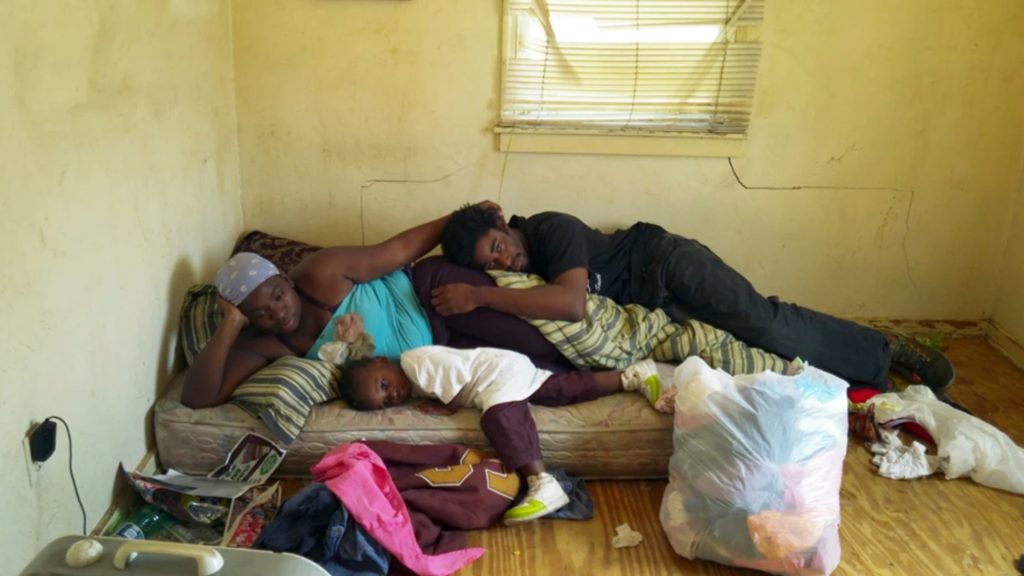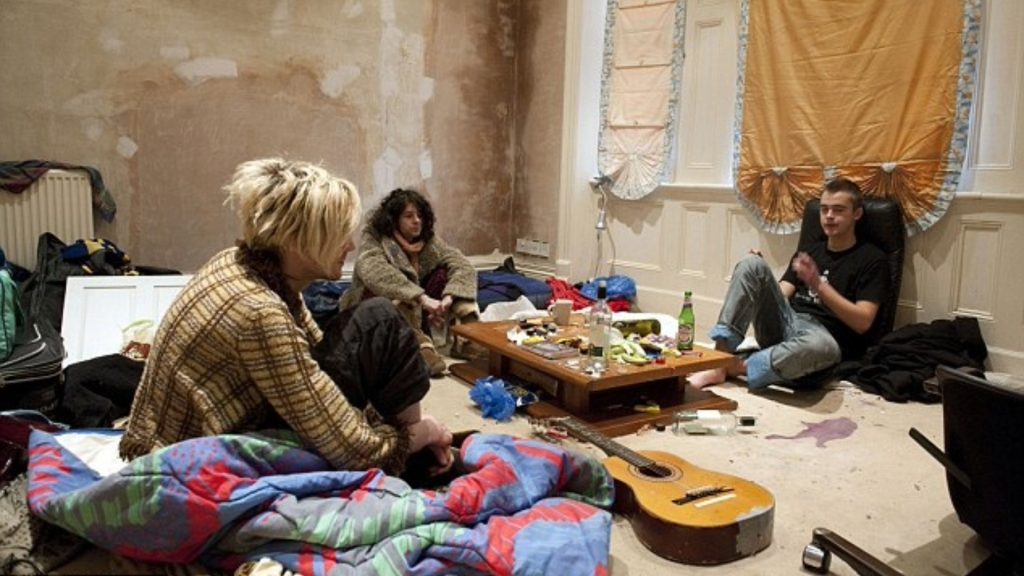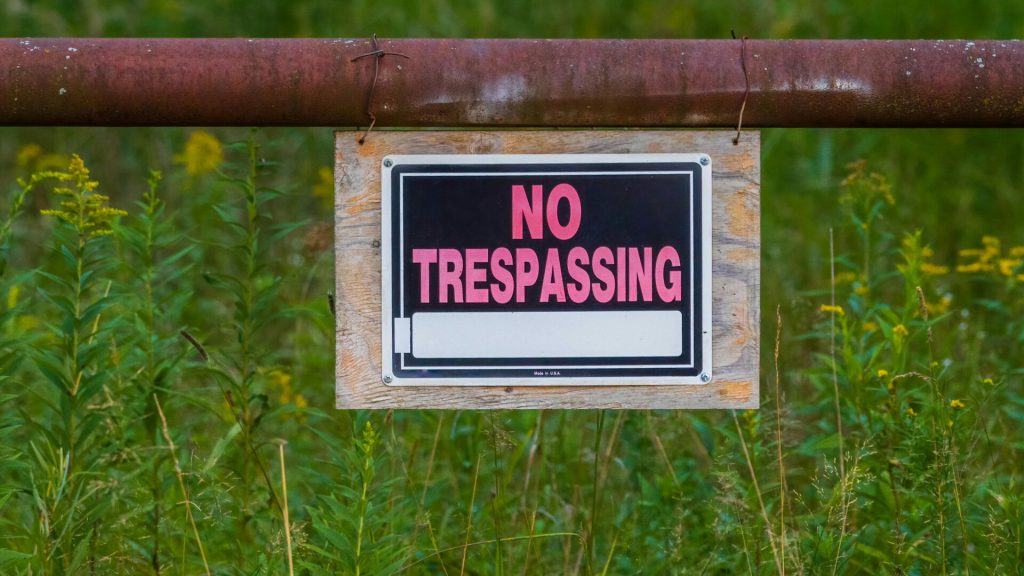The squatting crisis in California has gotten increasingly worse in the last few years. To counter the situation, a group of the state’s citizens have come up with an innovative business idea. The business enables individuals to hire professionals to get squatters evicted from their properties.
Squatter Squad, the company formed by the group of Californians, helps landlords with swift property recovery.
Squatter Squad to the Rescue
Squatter Squad’s website homepage says, “We offer fast and effective squatter removal and prevention services throughout Southern California.”

The homepage also explains what the company does very clearly. It says, “Our job is to save our customers from all of the wasted time, money, stress, and headaches that come from squatters overtaking your property.”
The Plight of Property Owners
Lando Thomas, one of the partners at Squatter Squad, told the Newsweek, “Because squatting seems to be on the rise, the courts are backed up from months to years, police can’t or won’t help, property owners feel helpless and are told taking the squatters to court is the only path to getting their property back.”

Thomas added, “Even the neighbors can be victims because where there’s squatters, there’s usually bad activities going on such as drug dealing and other crimes.”
A Move to Empower Property Owners
Thomas also shared with the Newsweek how intimidated homeowners often feel when they have squatters occupying their property.

Squatter Squad is seeking to empower homeowners so they can retrieve and recover what is rightfully theirs.
California’s Highly Protective Tenant Laws
The state of California has more protective tenant laws than many other states in the country.

The state of California entitles citizens to a “habitable dwelling.” To carry out eviction, due process must be undertaken and followed.
Property Owners Are Compelled to Provide “Essential Services”
The state of California has also imposed restrictions on security deposits and rent hikes.

Tenants are also allowed to sue their landlords or withhold rent if the landlord retaliates in any way or fails to provide “essential services.”
Squatter Squad Is Operating Within the Law
The company operates fully within the framework of California’s legal system.

The website says, “The secret to their success with being effective with squatters is knowing how to “handle them” (in a very specific way), while at the same time understanding what you can and cannot get done when it comes to California law.”
The Case of An Elderly Couple
The Newsweek reported that Thomas has been dealing with the case of an elderly couple who have gang members illegally living next door.

Thomas said to the Newsweek, “They are in their 80s and the gentleman was in tears towards the end of the call. I’m in touch with the corporation that owns the house and hoping we can help.”
Squatter Squad is Trained in Finding Legal Loopholes
There is a way to bypass the legal protections provided by the state of California to tenants. The Squatter Squad team is highly skilled at finding legal loopholes.

Squatter Squad team knows how to interact with squatters and the local law enforcement to achieve desired outcomes.
Tricks of the Trade
Thomas told the Newsweek, “There are ‘tricks of the trade,’ so to speak, and we have a lot of those.”

The fees charged by Squatter Squad varies from situation to situation. It typically falls anywhere within the range of $5,000 to $10,000.
Pricey But Valuable Services
The fees charged by Squatter Squad is definitely steep. However, paying the company can save homeowners from losing money in the long run by having illegal tenants continue to occupy their properties.

It is estimated that homeowners often lose up to $100,000 when an unauthorized tenant refuses to vacate the property.
Take a Stand
When the Newsweek asked Thomas for advice regarding what affected homeowners should do. He replied vehemently, “Stand your ground with them.”

Thomas added, “Keep after them on a regular basis as to not letting them feel any comfort or freedom inside your home or on your property. Remember, it’s your private property and they have trespassed illegally trying to ride our weak and gray area tenant laws that should have nothing to do with trespassers.”
Homeowners Have the Right to Enter the Property
Talking to Newsweek, Thomas shared more tips for things homeowners can do to regain control of the situation. Thomas said homeowners have the right to enter their property with a 24-hour notice.

Thomas recommends that homeowners to make the most of this right to enter their property for getting maintenance and repair work done. This will make the squatters uncomfortable.
Don’t Allow the Squatters to Think They Are Winning
While talking about the things homeowners should be doing, Thomas emphasized, “Do not ever let them feel like they have made it to a point where they are victorious over this situation.”

Thomas also recommended, “Do not ever leave your home or property vacant without cameras and no-trespassing signs.” He added, “Leave a car in the driveway when on vacation. Do anything to make it appear as though someone is inside the home at all times.”
Landlords Are Advised to Be Careful
Cody Harvat, a real estate broker associated with The Scott Group, told the Newsweek, squatters’ rights are generally governed by the laws of the state and local jurisdiction. Many states do not afford any rights to squatters unless they have inhabited the property for a specific duration.

Horvat told the Newsweek, “For landlords who want to protect their properties, the first step is always to run a detailed background check on any potential tenants.” He added, “This includes calling previous landlords to make sure they were good tenants who took care of the property they were staying in.”






